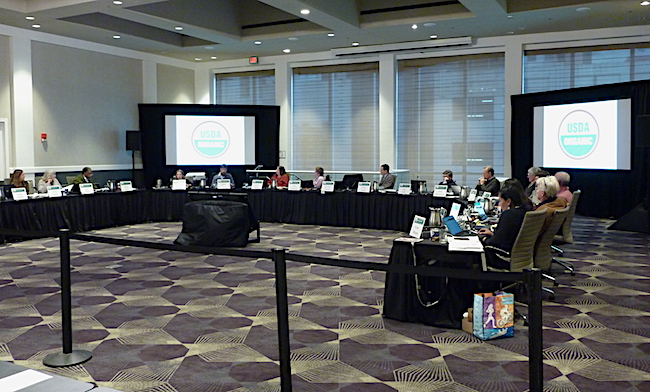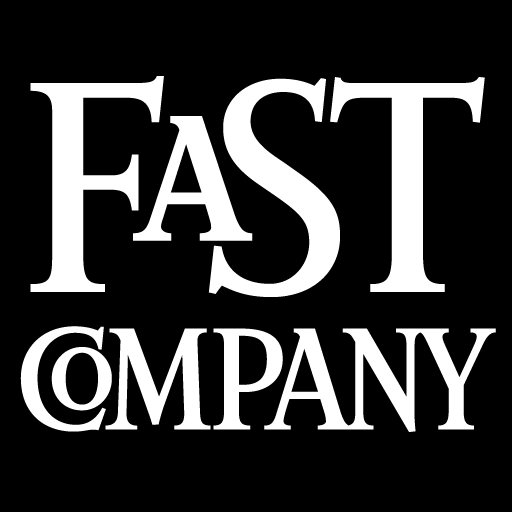
The USDA is Making Real Progress in Addressing Fraud, Yet Inconsistencies Remain
(Beginning today, there is a new section in Organic Insider called New Organic Products. Please see below.)
As a $50 billion dollar industry with product coming from all over the world, the supply chain of the U.S. organic sector is incredibly complex – something that makes it very attractive to criminals.
Exclusively for Organic Insider readers is coverage from last week’s National Organic Standards Board (NOSB) meeting in Minnesota, where the USDA gave an update on its progress addressing the serious problem of fraudulent organic imports, particularly grains from the Black Sea region.
Here are some key highlights:
– Of 1,175 operations in the Black Sea area that were formerly certified as organic, about 700 remain certified. The 475 non-organic operations either surrendered their certifications or have been suspended/revoked.
– There has been a 95% drop in volume of organic corn from Turkey, from January 2016 to August 2018.
– Unannounced inspections and testing have been required for all grain and oilseed suppliers in Turkey and the Black Sea, and for all incoming vessels from that region. Testing has resulted in product being diverted from the organic supply chain.
– Examples of blocked shipments:
Corn: from Turkey, with crops grown in Russia, Moldova and Kazakhstan
Corn and Soybeans: from Turkey, with corn grown in Kazakhstan
Chickpeas: from Turkey, country of production/harvest is unknown
Blueberries: from Chile
– There are plans for a global organic oversight and traceability system, including the possibility of a unified blockchain.

Along with what was presented in Minnesota, USDA Secretary Sonny Perdue told me last month that the USDA is using forensics and laboratory testing to identify fraudulent products, and the agency is cutting off organic certifiers who are not doing their jobs.
Despite the fact that the USDA appears very committed to cracking down on fraud from abroad, including fraudulent organic fruit from Central and Latin America, there is not the same level of commitment in enforcing the rules within our own border — something that also poses a risk to the credibility of the organic seal. The two main issues we face domestically are organic factory farms and the allowance of hydroponics in organic, which is a complete violation of the Organic Foods Production Act of 1990.
All that being said, the USDA’s update in Minnesota on fraudulent organic imports was encouraging.
Two Other Items of Note at the NOSB Meeting – Nanosilver and Paper Pots
* A company in San Diego has petitioned the NOSB to allow silver dihydrogen citrate to be used as an antimicrobial processing aid and a disinfectant/sanitizer. What makes this controversial is many people believe that silver dihydrogen citrate is nanosilver.
According to Jaydee Hanson, Senior Policy Analyst at the Center for Food Safety, “Silver dihydrogen citrate would be the first use of an engineered nanochemical in organic and also the first use of a silver material in organic. Plus, there are real problems with its toxicity.”
The Center for Food Safety will soon be launching a petition pushing for the rejection of this material, which an NOSB subcommittee is now evaluating.
* One tool that has become indispensable for many small and medium-sized organic farmers is paper pots. Yet, the problem with paper pots is that they use a synthetic adhesive which has not been approved by the NOSB and USDA.
A deadline for farmers’ use of paper pots had been set for December 2018, but at last week’s meeting, the NOSB unanimously voted to recommend that the deadline for paper pots be extended so that the board could finish its review of this adhesive.
Getting the USDA to approve this extension is vital (the USDA has final say, not the NOSB) because many small organic farmers could opt out of the organic program, believing that paper pots are more important to their livelihood than the organic seal. To support the extension for the temporary use of paper pots in organic, people are encouraged to write letters to Secretary Sonny Perdue at the USDA. From what I have been told, the letters do really matter.
 |
Have a great day! 
Max Goldberg, Founder |
Quick Hits
* A Dangerous Idea: Eugenics, Genetics and the American Dream, the award-winning documentary co-written and produced by Center for Food Safety founder Andrew Kimbrell, is now available on iTunes and Amazon.
* This film is a very important piece of work, and the trailer can be viewed HERE.
* The Bionutrient Food Association’s 8th Annual Soil & Nutrition Conference will be taking place December 1-2 in Southbridge, MA.
* On November 30th, the day before, there will be pre-conference intensives and a presentation of the Real Food Campaign – Building Tools for Transparency in the Food Supply. I will be there for all three days.
* Mark Schiller has been named as the new CEO of Hain Celestial, taking over from Irwin Simon, who founded and has led the company for the last 25 years.
* Nic’s Organic Fast Food, the Chicago-area’s first certified organic fast-food chain, will be opening a location in the city on November 19th. The company has plans to open 75 restaurants by 2020 in major markets including New York, Southern California, South Florida, and more.
* Because the GMO Potato is now “widely commercially available,” the Non-GMO Project has just named potatoes to its High Risk list.
*
New Organic Products
Patagonia Provisions' Savory Seeds
Patagonia Provisions has come out with organic savory seeds. Made with lentils, buckwheat, hemp, and other seeds, the savory seeds come in three flavors – barbeque, chipotle lime, and mellow curry – and are sourced from organic cover crops, which help to improve soil health.
Truvani Plant-Based Protein Powder
Truvani, the brand started by Vani Hari (The Food Babe), has introduced an organic, plant-based protein powder. This protein powder is made with only six ingredients, including hemp and pumpkin seed protein, and contains no natural flavors or gums.
ZEGO Seed + Fruit Bar
ZEGO’s sunflower date bar is not only tested for glyphosate, but it is free of the top 14 allergens. Additionally, the company tests every batch for cross contact with peanuts, soy, milk and gluten, and posts the results on the QR code on each package.
Want your product profiled here? Learn more
Weekly News Summaries


Regenerative Candidates for Office are Endorsed
Citizens Regeneration Lobby, which promotes organic regenerative agriculture and is the lobbying arm of the Organic Consumers Association, has come out with a list of political candidates across the country that it has endorsed, including Audrey Denney in California (above).

$2.2M to Fund No-Till Organic Grain Research
By Caroline Schneider
Researchers at the University of Wisconsin (Madison), Iowa State University and the Rodale Institute are embarking on a new project to assess current technologies that could be used in no-till organic systems and to determine which practices will help farmers protect soil health in their fields.

Trump to Nominate Former Monsanto Executive to a Top Interior Position
By Timothy Cama and Michael Burke
Environmentalists are distraught over the nomination of Aurelia Skipwith, calling her "the most unqualified” director in the U.S. Fish and Wildlife Service's history.


The Next "Must-Have" Label.......That Addresses Glyphosate
By Kate Harrison
Organic baking company Foodstirs has become the first major organic retail brand to receive Glyphosate Residue-Free Certification, which has been called the next "must-have" clean food label.

Organic Farmers Fear That the Cannabis Boom May Have Poisoned Lands in Oregon
By Katie Shepherd
Organic farmers in Oregon are deeply concerned that unrestrained cannabis farming has led to pesticide runoff and the killing of pests.

Scientists in the UK are Pushing Back Against Gene Editing Being Treated like GMOs
By Ed Leahy
Pro-GMO scientists from Cambridge, Oxford and other top European universities are protesting against an EU ruling which declared that gene editing should be regulated in the same way as GMOs.


Once Upon A Farm Headlines the Fast Company Innovation Festival
By Kelsey Campbell-Dollaghan
Company co-founders Jennifer Garner and John Foraker discussed their goal of scaling quickly but remaining mission-driven.

The Goods Mart is a Modern, Organic Twist to the Outdated Convenience Store
By Sheila Marikar
With locations in Los Angeles and New York City, The Goods Mart not only offers organic and Non-GMO products but places a real emphasis on initiatives that support the local community.

VMG Partners and Hillhouse Capital Unveil $200M Fund
By Elaine Watson
Hillhouse Capital and VMG Partners will co-invest in consumer brands seeking to expand their global reach, with organic baby food brand Little Freddie as their first investment.
The material in this newsletter is copyrighted and may be reprinted by permission only. All requests must be in writing. Please use our contact form to request republication rights.
Newsletter Archive
Quick Hits
* A Dangerous Idea: Eugenics, Genetics and the American Dream, the award-winning documentary co-written and produced by Center for Food Safety founder Andrew Kimbrell, is now available on iTunes and Amazon.
* This film is a very important piece of work, and the trailer can be viewed HERE.
* The Bionutrient Food Association’s 8th Annual Soil & Nutrition Conference will be taking place December 1-2 in Southbridge, MA.
* On November 30th, the day before, there will be pre-conference intensives and a presentation of the Real Food Campaign – Building Tools for Transparency in the Food Supply. I will be there for all three days.
* Mark Schiller has been named as the new CEO of Hain Celestial, taking over from Irwin Simon, who founded and has led the company for the last 25 years.
* Nic’s Organic Fast Food, the Chicago-area’s first certified organic fast-food chain, will be opening a location in the city on November 19th. The company has plans to open 75 restaurants by 2020 in major markets including New York, Southern California, South Florida, and more.
* Because the GMO Potato is now “widely commercially available,” the Non-GMO Project has just named potatoes to its High Risk list.
*



